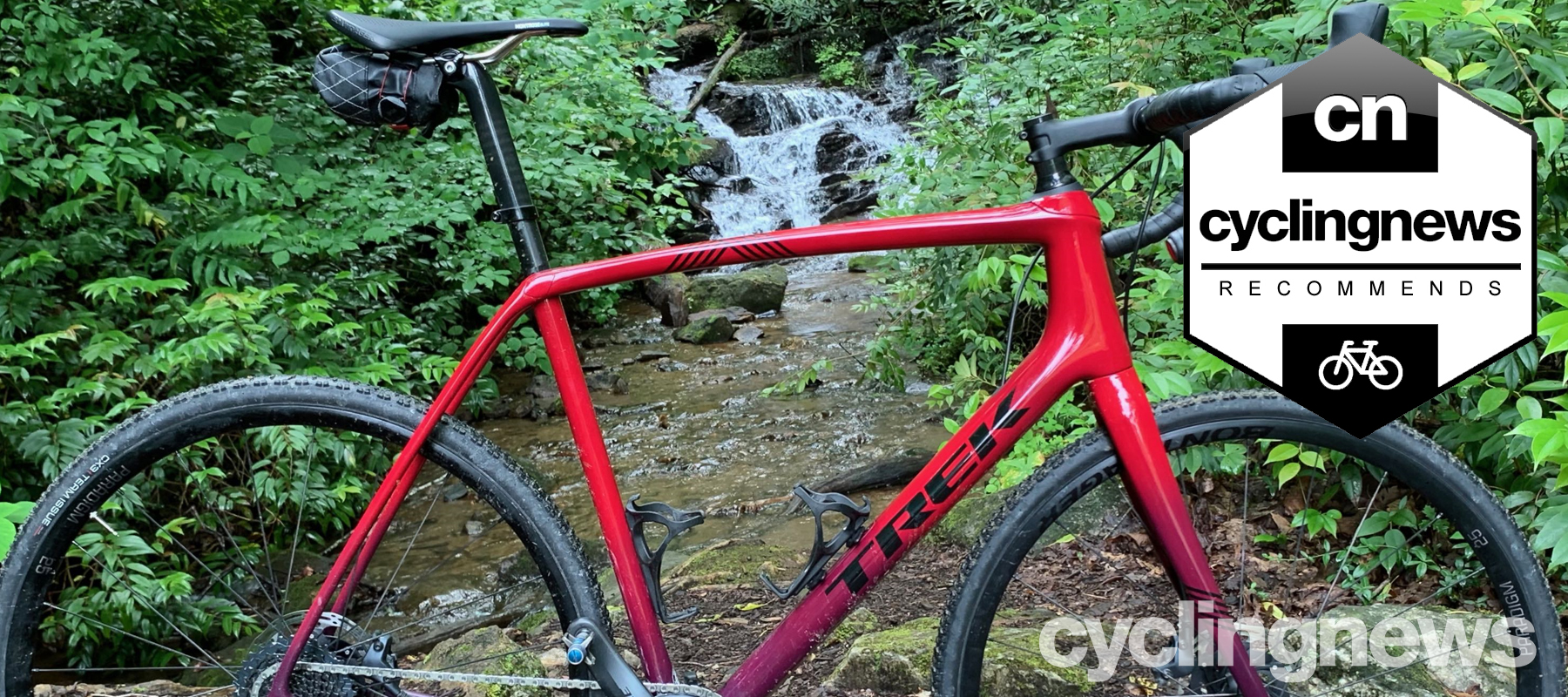Cyclingnews Verdict
A closed-circuit precision tool that can be used for the odd gravel adventure
Pros
- +
Responsive geometry
- +
Smooth-riding frame with top of the line components at a better price point than competitors’ models that typically have lower end components
- +
Lightweight off the rack at 8kg
Cons
- -
275lb weight limit
- -
Tyres puncture easily
- -
Doesn't come set up as tubeless
You can trust Cyclingnews
The 2020 Boone 7 Disc is the top of the line when it comes to Trek's cyclo-cross offerings – the lightest, most blinged-out bike in the range, it's the best cyclo-cross bike currently on offer from the American brand.
Based around ultra-lightweight 600 Series OCLV full carbon frameset, the Boone 7 Disc has all the features of the best road bikes along with some more 'cross-specific tweaks including front and rear IsoSpeed suspension to smooth out the ride, tubeless-ready Bontrager Paradigm Elite 25 TLR Disc wheels to accommodate wider tyres, and SRAM's Force eTap AXS 1x12 groupset.
An impressive bike straight out of the box, the 2020 Boone 7 Disc comes with a juicy Magenta/Mulberry Fade paint job you'd almost hate to get dirty. But a 'cross bike is meant for mud, and its first stop was our local practice 'cross course where the Boone’s proven race pedigree was immediately apparent.
Best cyclo-cross bikes: our pick of the best cyclo-cross bikes this year
Best gravel bikes: Fun and fast adventure bikes for your next off-road ride
Best gravel bike wheels: Our pick of the best gravel wheels for racing and adventure riding
Specification
The tapered head tube and cabling is hidden by the Control Freak internal routing makes for an elegant, classic look while making for a more comfortable experience while shouldering the bike while the geometry of the Boone remains unchanged from previous years.
It's the same quick-handling set-up that riders like Katie Compton and Sven Nys have ridden to international victories – in fact, they both had a hand in designing the frame geometry. When compared with other bikes I've ridden on this same course, the Boone proved it was more than up to the tight turns, fast descents and loose dusty surface.
The Boone's bottom bracket was high enough that I was able to clear a series of short berms without having to worry about it bottoming out while staying quick in the corners. I'm sure I never came close to pushing the bike as hard as it can be pushed.
While I could never obviously feel the action of the IsoSpeed decoupler – a feature that is also on Trek's top road bikes – I did feel like the bike was staying hooked up with the rough terrain on the course much better than my other 'cross rigs which allowed me to get on the power and stay on it earlier out of turns and over rougher parts of the course. The IsoSpeed Cross full carbon fork with 12mm thru-axle made for a super stiff front end with just enough smoothness for comfort and enough responsiveness for great handling.
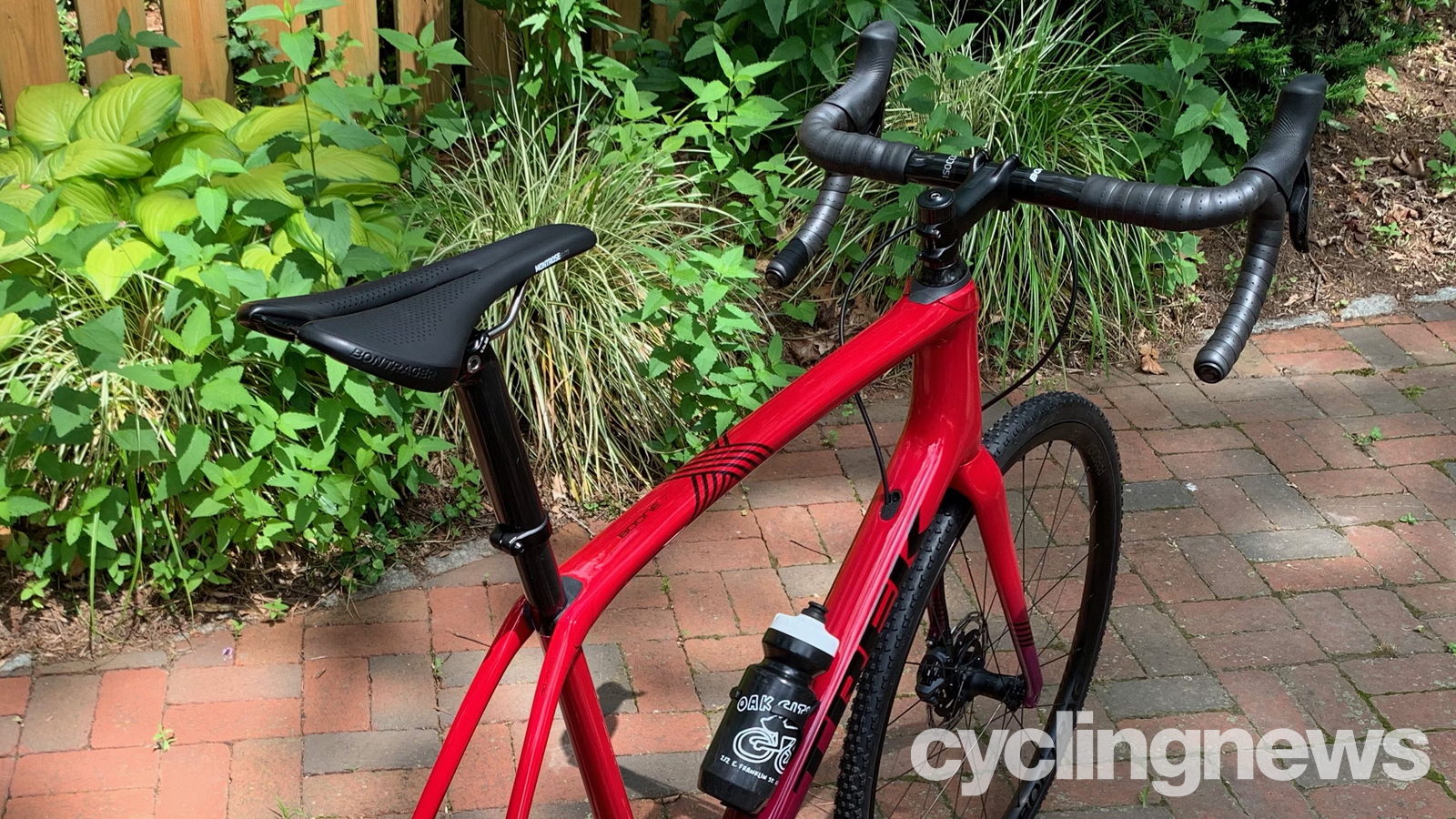
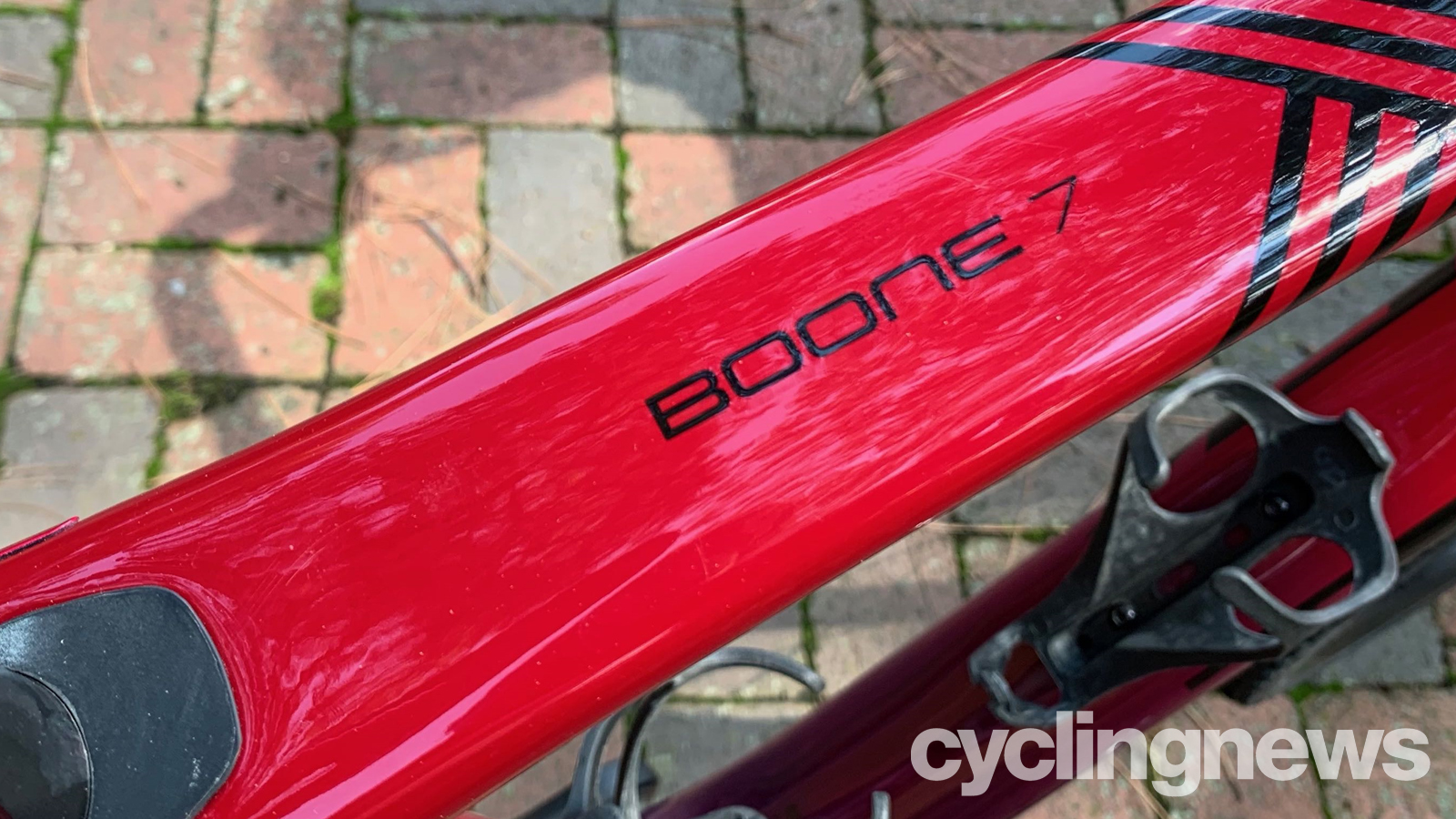
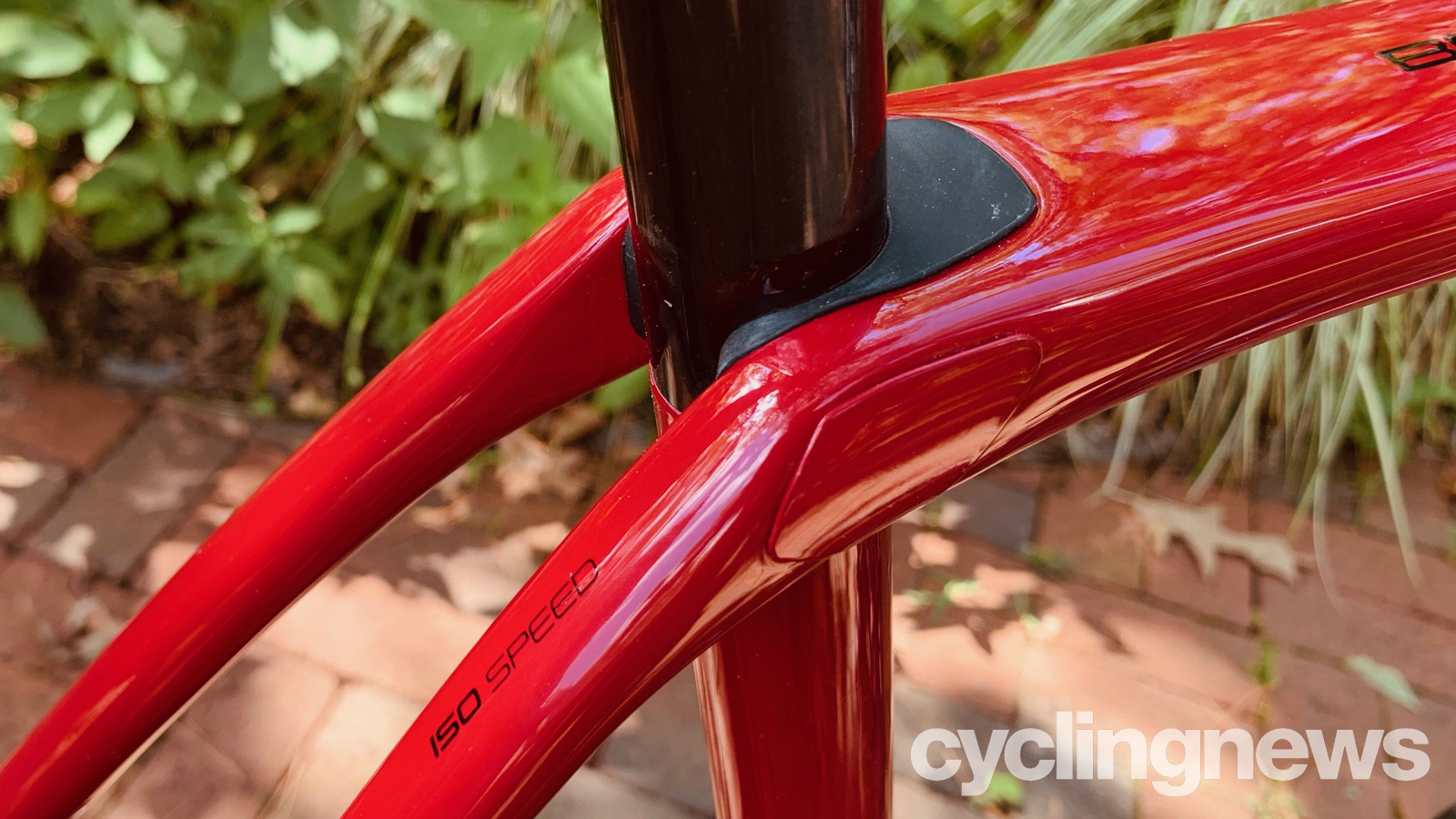
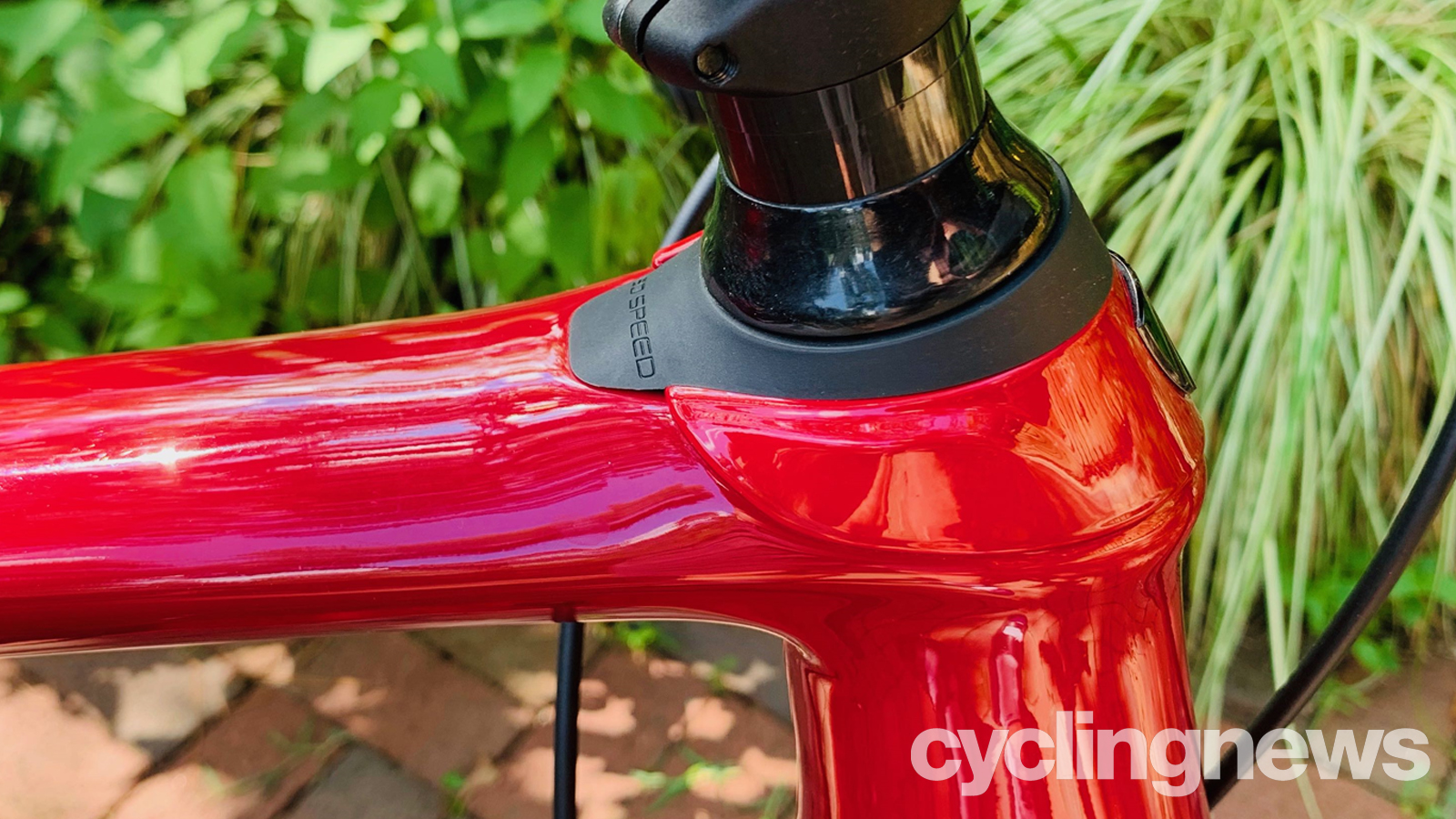
Components and performance
Trek's choice of SRAM Force hydraulic disc was also a welcome change from my other setups. Previously all my experience with disc brakes had been on mountain bikes so I was interested to see if I felt like they were worth it in the setting of 'cross, the short answer was a resounding yes!
Gone are the past-years' debates over cantilevers vs disc brakes. It is quite clear why all but the most curmudgeonly 'cross racers became disc brake converts. I quickly found myself braking later and later into corners with confidence, and found the braking performance to be consistent and reliable in every context on and off the road.
In fact, my only braking misstep came when I locked up the back brake on an off-camber, loose gravel turn while descending, resulting in a small crash, but I put that down to the fact that I prefer my brakes cabled up with the front brake on the right hand, opposite of what the Boone came with.
Speaking of the brake cables, Trek sent out the bike without any frame protectors where the brake cable meets the head tube. After a week of putting it through the paces on dusty crushed gravel and dirt, the cables blemished the paint, so you’ll want to protect that contact point.
The Boone 7 Disc comes with a SRAM Force 1x12 eTap groupset with a 40T front ring and 10-33T rear cassette, and I wasn't sure how it would compare with a 2x. The course has numerous changes in elevation but nothing so steep it ever required the small ring in a race context. It took a few tweaks adjusting the shifting performance, but once dialled in, the dual-sided shifting worked flawlessly even under load.
The SRAM 1x12 drivetrain seems well thought out for racing cyclo-cross. I never felt like I was under or over-geared. However, that setup did present limitations when I took the Boone out for a week of mixed gravel and road rides.
On the road, I was often out of gear before I wanted to be and found myself spinning like mad on descents, while on steep gravel climbs I was wishing for a smaller front ring so I could settle in and not have to stand up and grind my way up 15-20 per cent grades. I also found the large jumps in the rear cassette rather annoying. It is clearly meant to be a racing bike and would not rank against the best gravel bikes as an adventure machine.
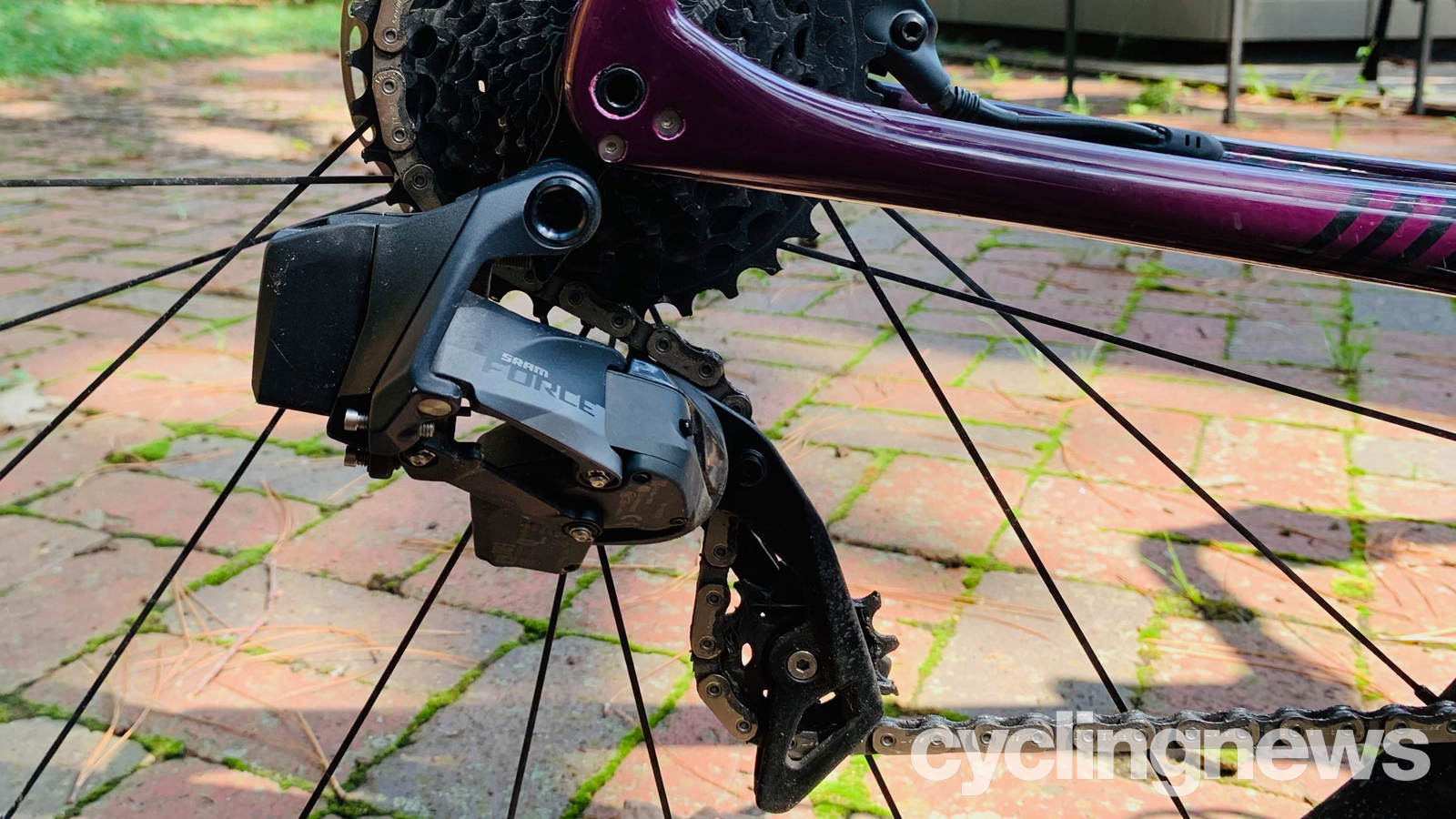
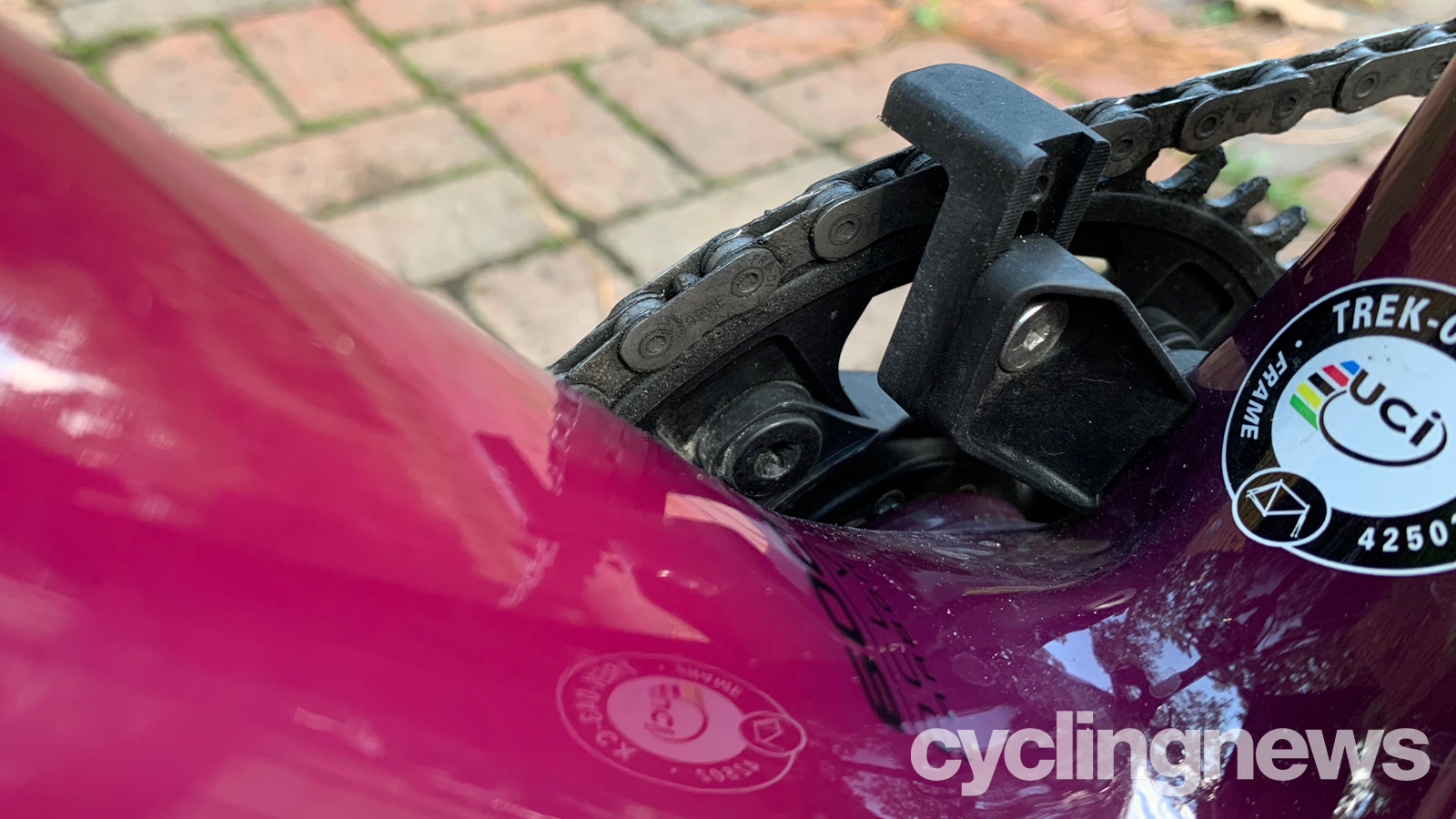
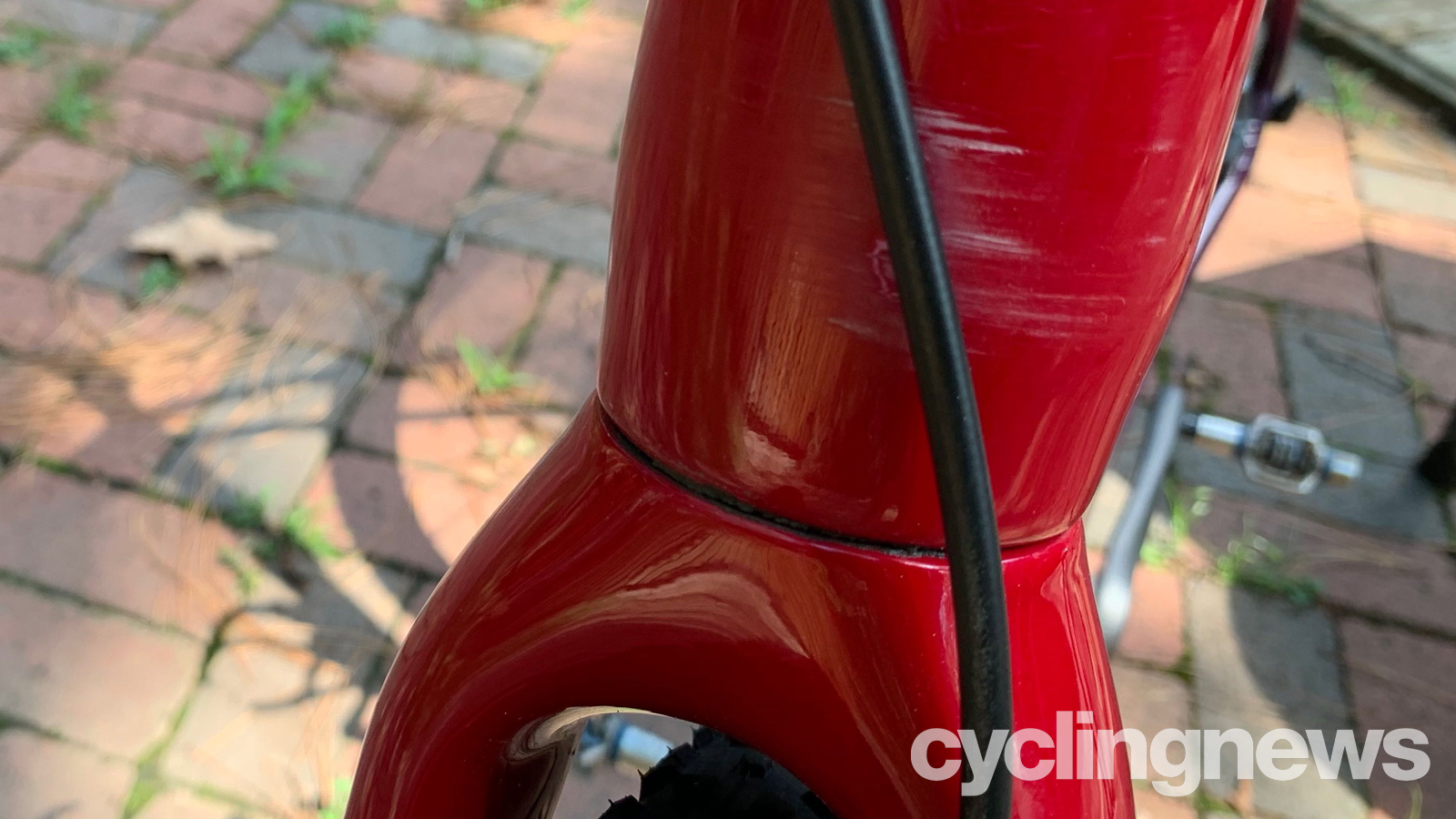
While the jumps in gearing made no sense on the road, on a 'cross course it was perfect, with small enough gears for short, steep climbs or abrupt changes in pitch and big enough gears for powering over fast, flat sections and the lack of a front derailleur coupled with the hefty 3S chain keeper there's less worry about dropping the chain.
The only time I managed to drop the chain was when a stick got caught up in it and pulled the chain off on the outside of the chain keeper. Once off there was no way to get the chain back on without dismounting and putting it on by hand - one of the disadvantages of not having a front derailleur.
Another sweet feature of the AXS groupset is the Orbit 'chain management technology' - it noticeably kept the chain from slapping against the chainstays on bumpy sections and had flawless, quick-shifting even on the roughest sections.
The only part of the bike that wasn't absolutely top of the line was the wheels. It comes with low-profile Bontrager Paradigm Elite 25 tubeless-ready wheels, which were smooth rolling and felt fast on and off the road and, aside from having an "attack of thousand bees" freehubs, they were unobjectionable.
The Paradigm is light but isn't the lightest wheelset in the range, and if you're looking to save grams and get a more aero wheelset, you might consider upgrading to the Aeolus Pro 3V TLR Disc that comes on Trek's high-end Checkpoint gravel bikes. The wheels came with a “quick release” (a 6mm hex with a short handle) that was easily transferable from one axle to another that was handy to have. The bike is set up for 12mm thru-axle wheels, so if you've got a shed full of 15mm wheelsets from older Trek models, you'll need to find some adapters.
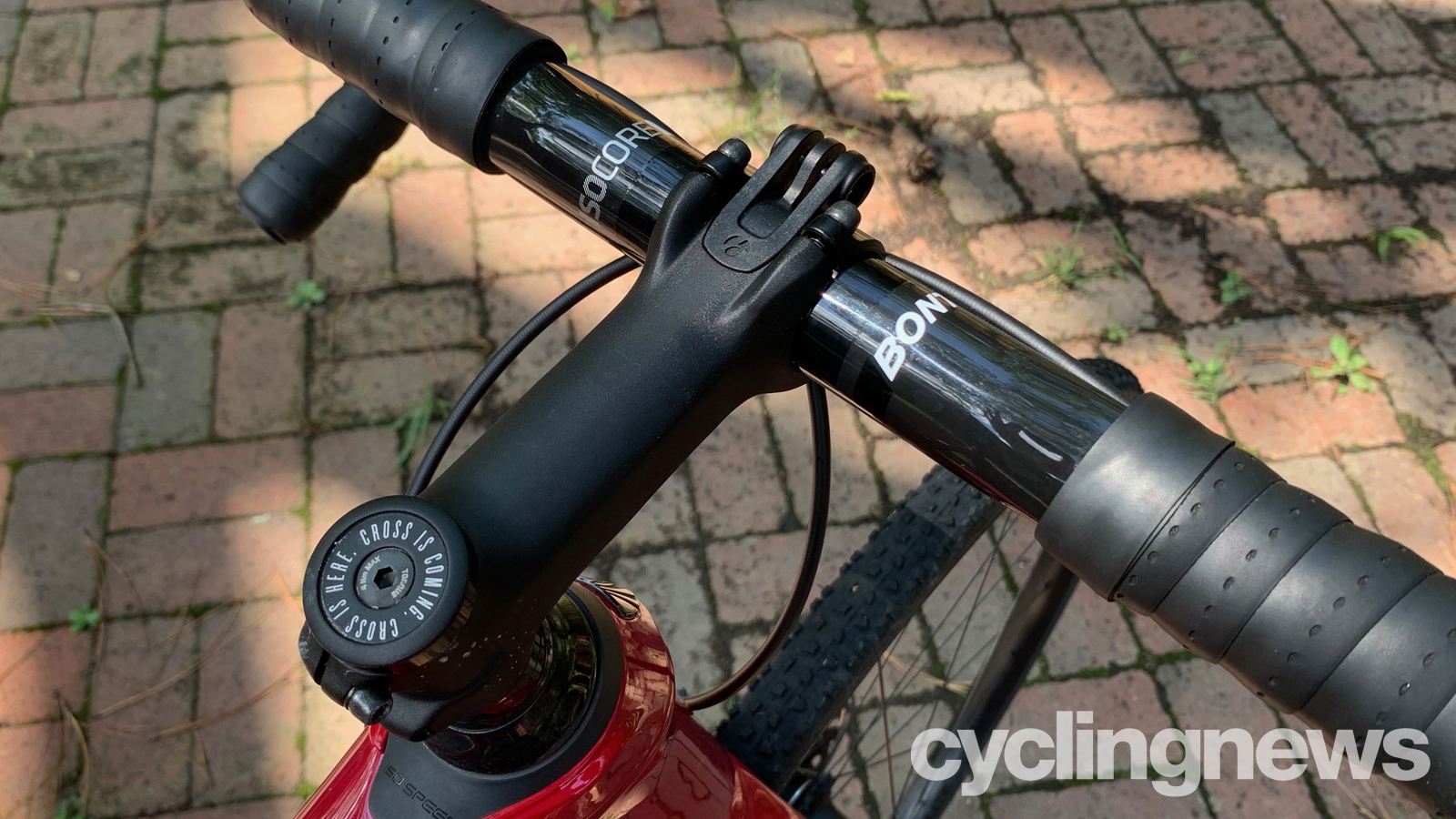
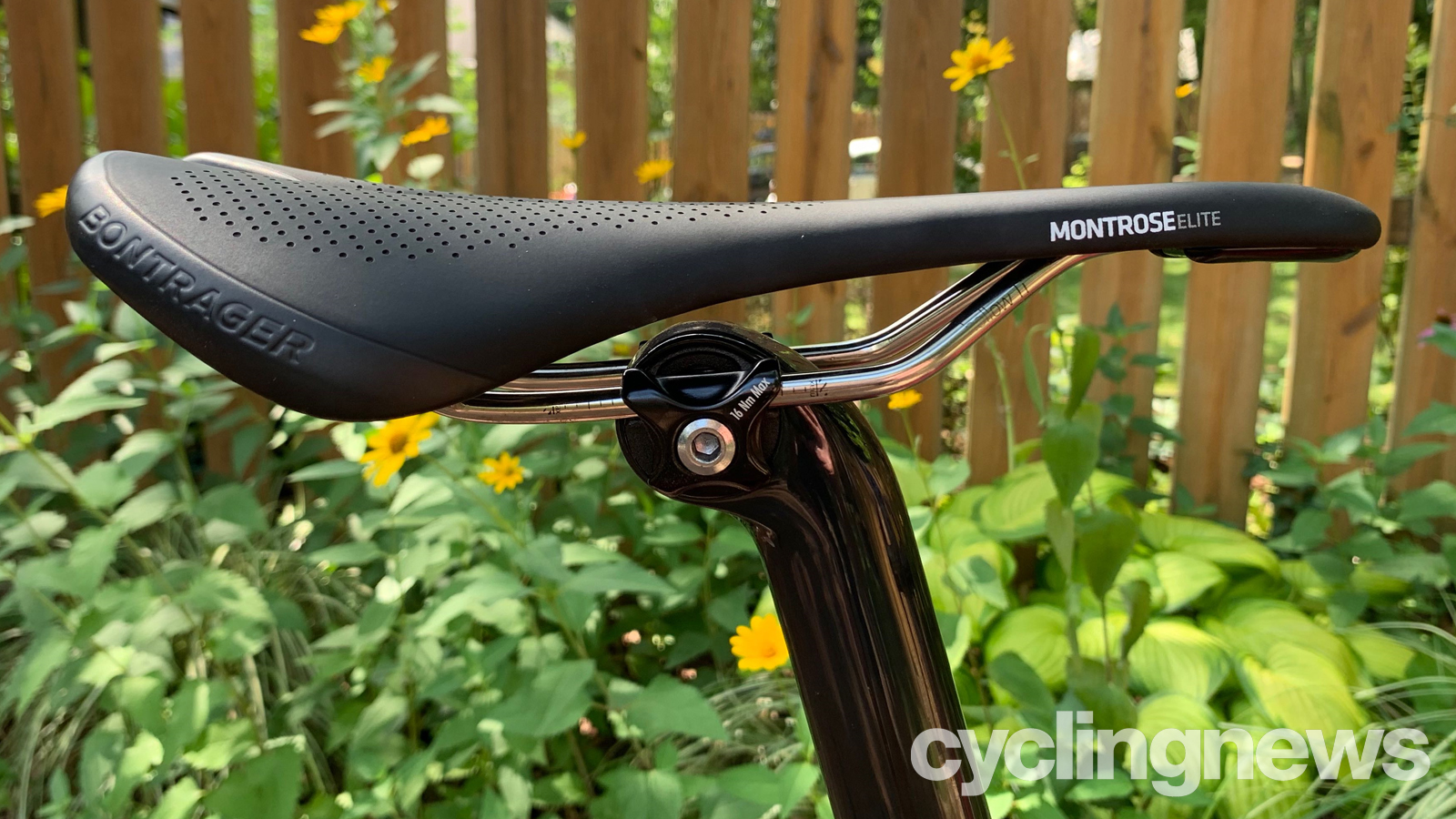
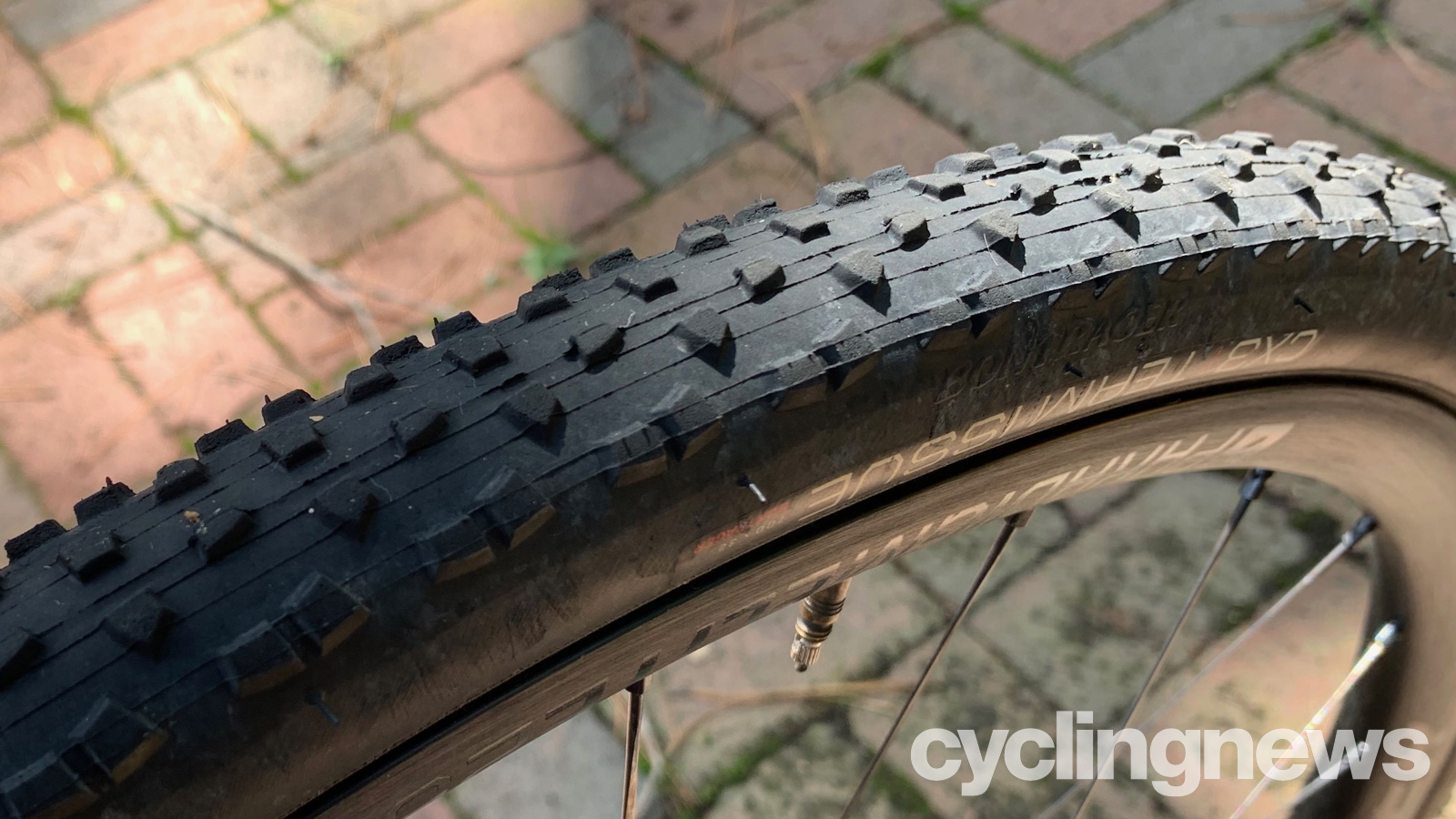
The Bontrager CX3 Team Issue tyres were good for dry conditions and are race-worthy in terms of traction and rolling resistance. However, you will absolutely want to convert the tyres to tubeless. I suffered several punctures in the brief test period which made me question their durability when run with tubes.
As for the rest of the components, Trek made fine choices for the contact points. The Bontrager Montrose Elite saddle with titanium rails was surprisingly comfortable and light while the Bontrager carbon seatmast cap feels amply secure and did not slip when tightened to spec. The tall length gave plenty of room for adjustment for my inseam.
The Bontrager IsoCore carbon bars have a comfortable shape and are plenty stiff, while the Bontrager Pro stem is compatible with the Blendr mounting system and even the Bontrager Supertack Perf tape is Trek's top of the line.
Verdict
The Boone was a pleasure to ride and made me hope there was a 'cross season to look forward to. I was impressed with the frameset and while I might make changes to the build to suit my personal tastes, the provided parts were all well-chosen and would allow anyone to jump into 'cross racing with a complete setup that would leave little if anything lacking. There are even a couple of really nice touches such as the water bottle quick disconnects (great for when you want to convert to a race day spec quickly).
Tech spec: Trek Boone 7 Disc
- Price: $4,999.99 / £4,300 / €4,999
- Frame: 600 Series OCLV Carbon, front & rear IsoSpeed
- Weight: 7.92kg
- Groupset: SRAM Force eTap AXS
- Crankset: SRAM Force
- Wheels: Bontrager Paradigm Elite 25
- Tyres: Bontrager CX3 Team Issue, 700x32c
- Brakes: SRAM Force hydraulic disc
- Bar: Bontrager Pro IsoCore VR-CF
- Stem: Bontrager Pro
- Seatpost: Bontrager Carbon
- Saddle: Bontrager Melrose Elite
